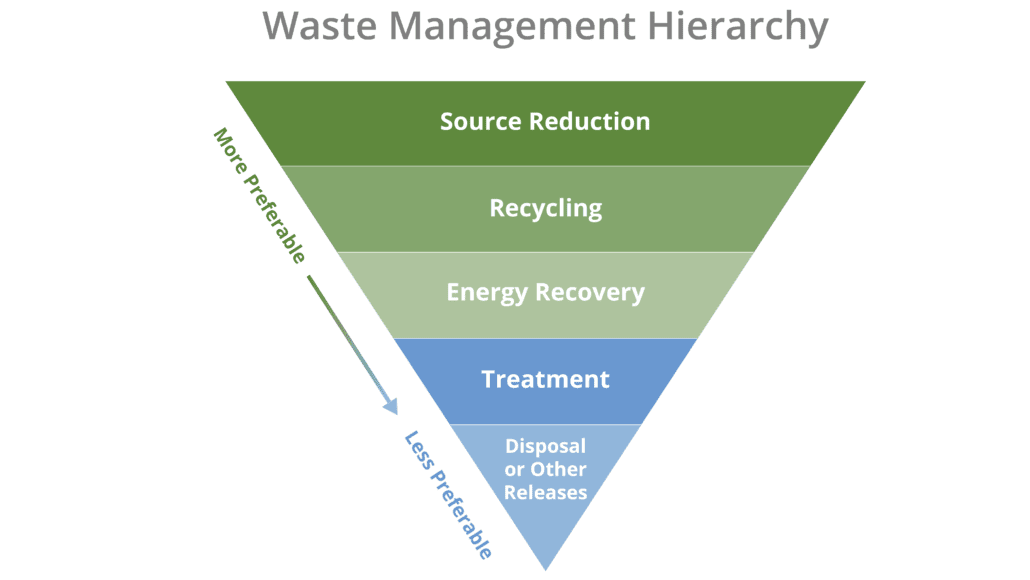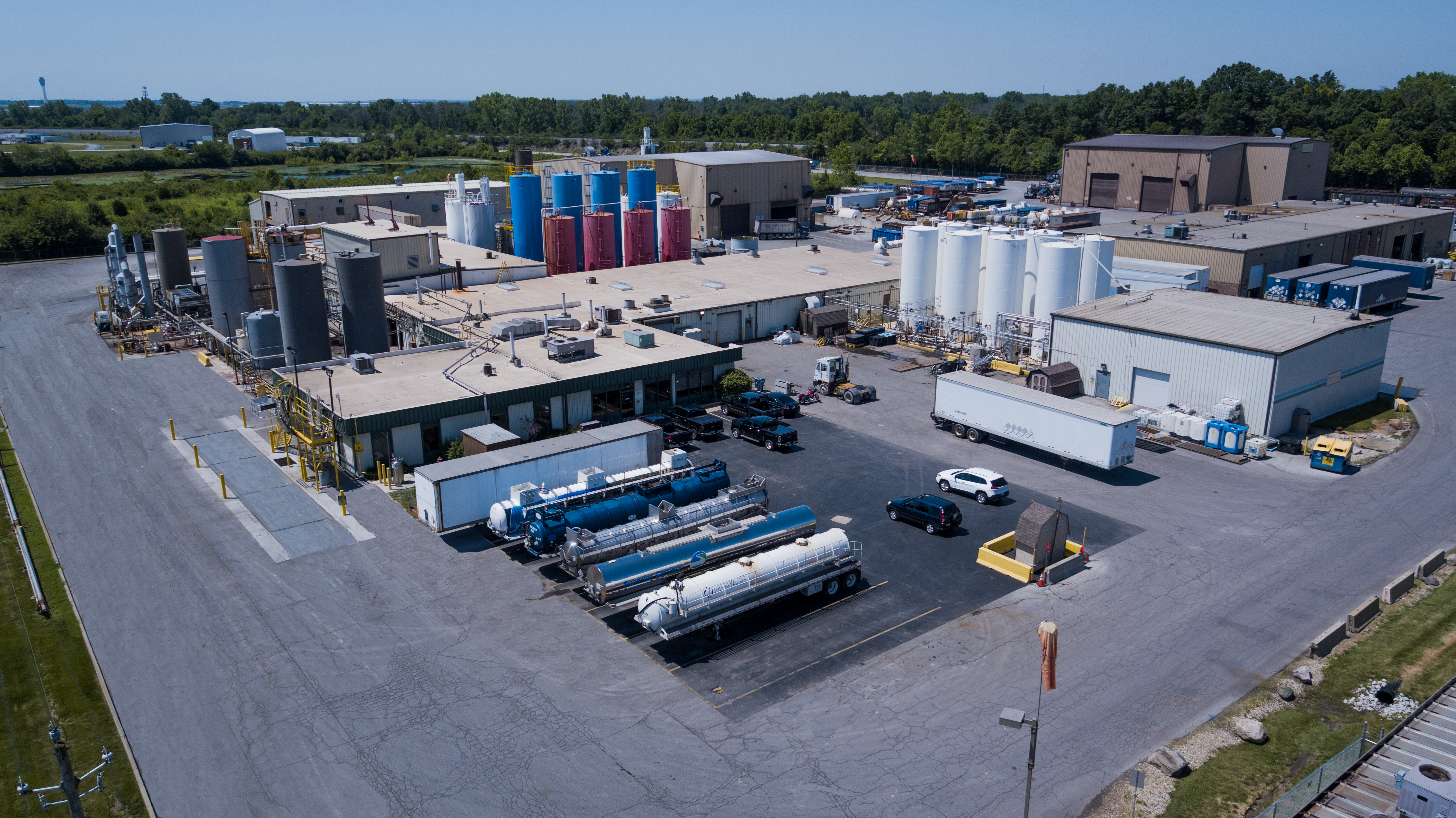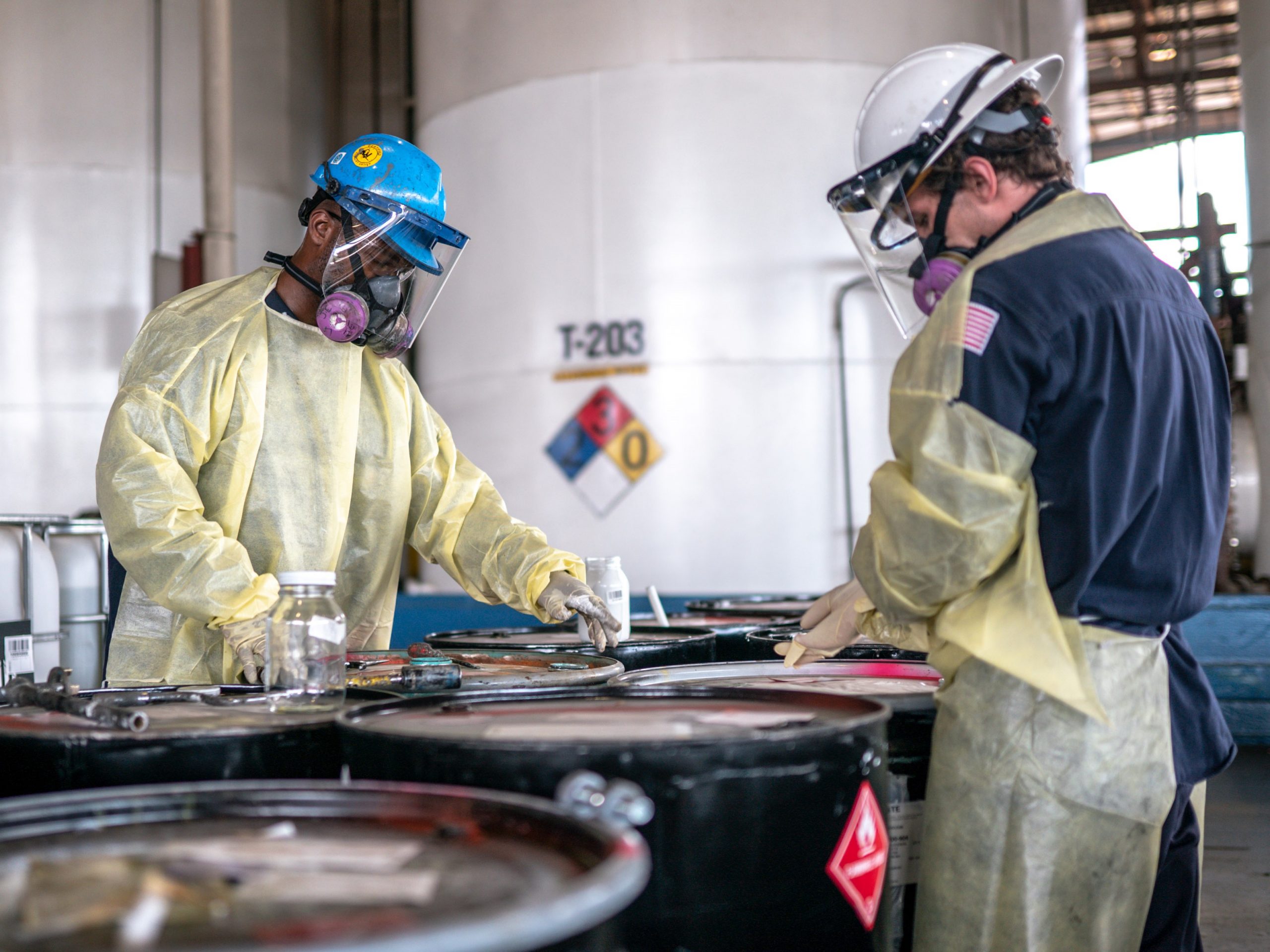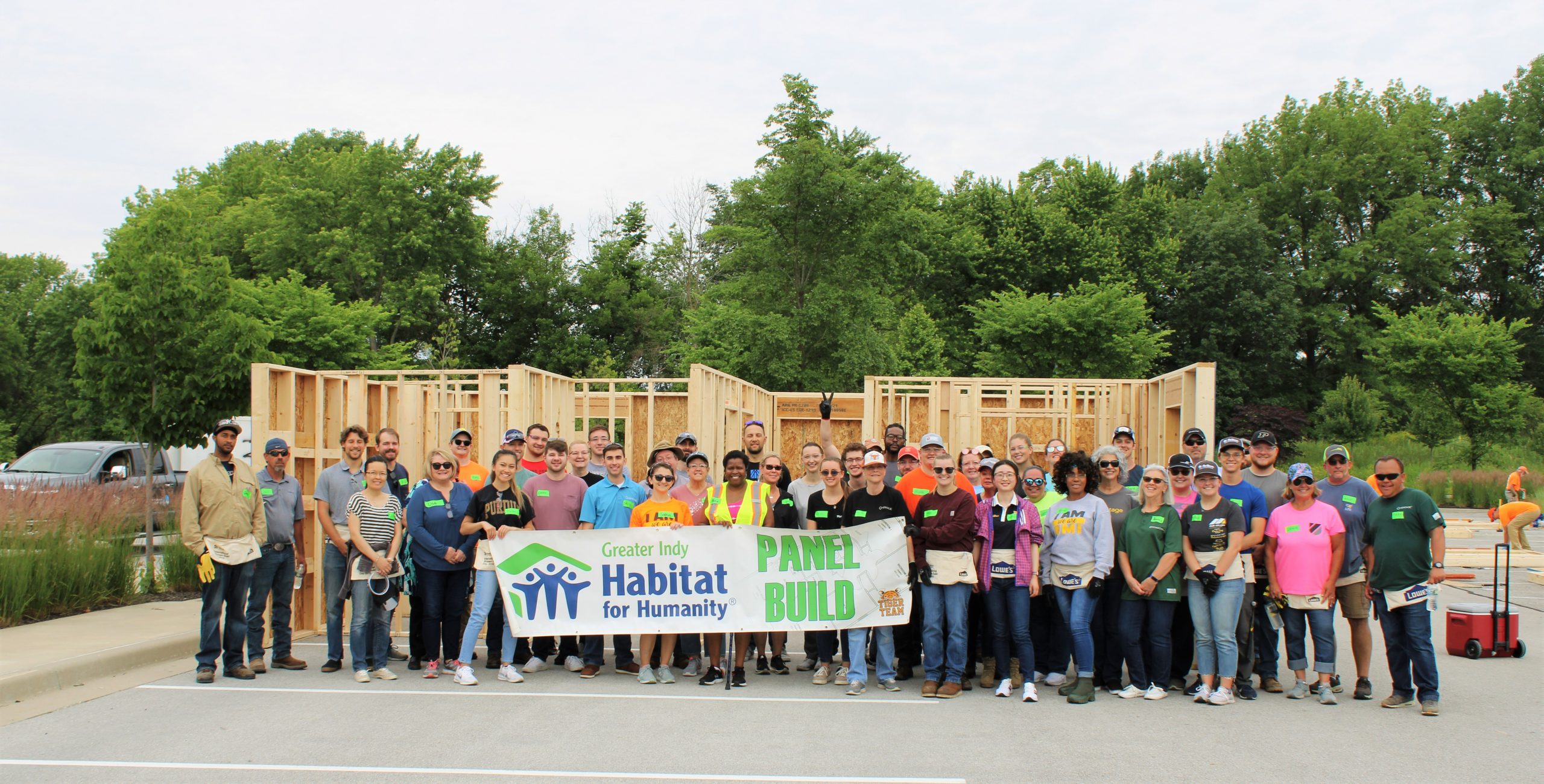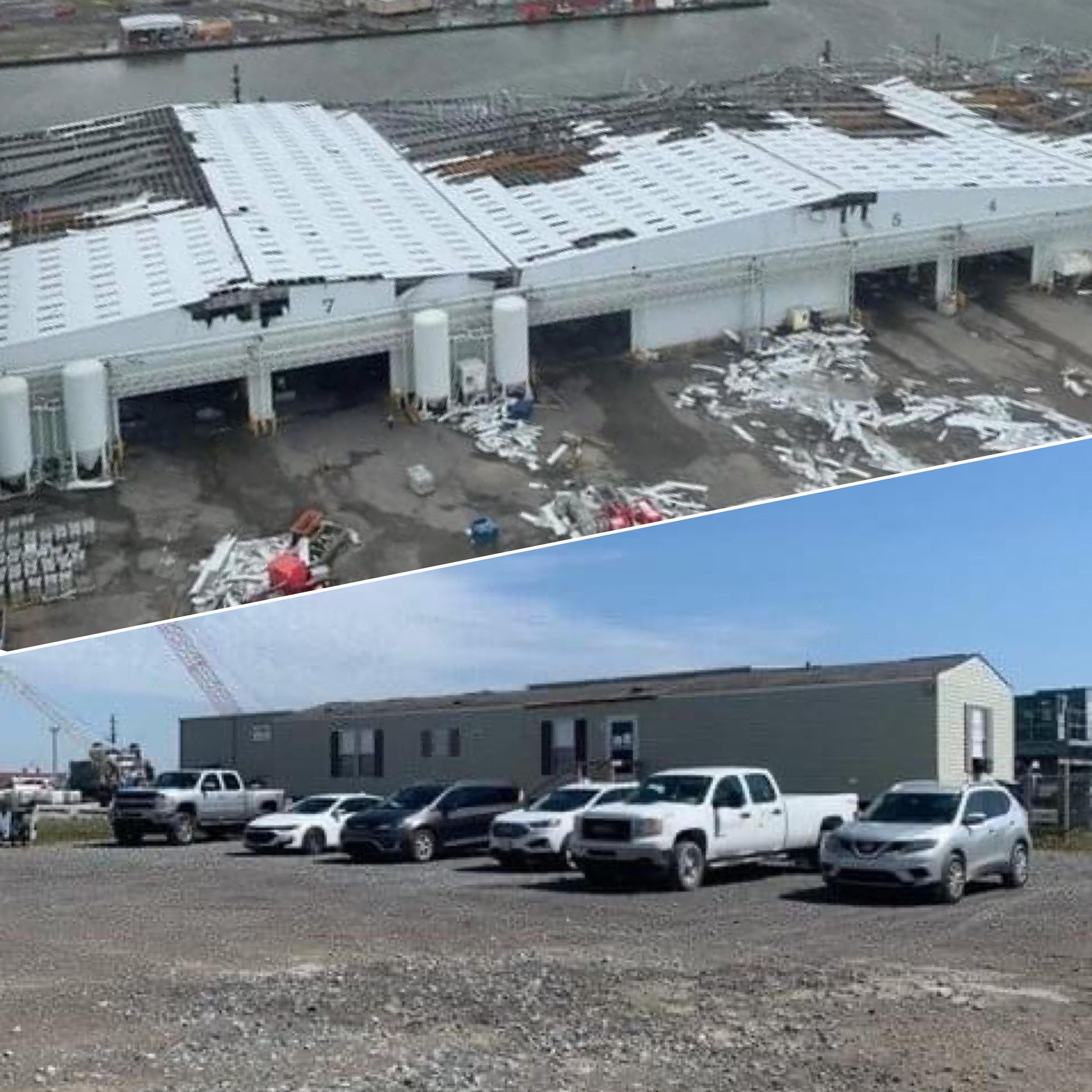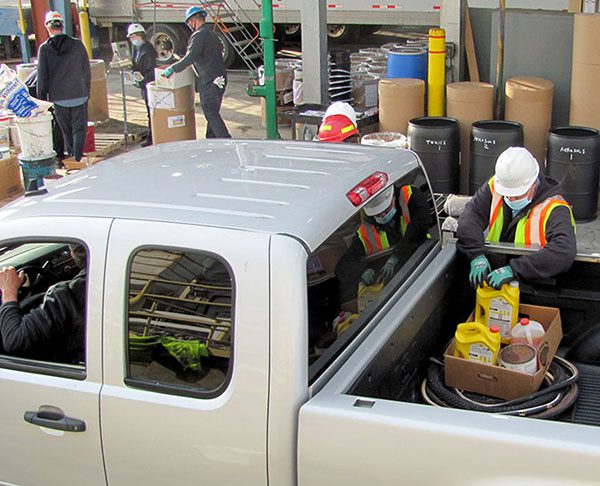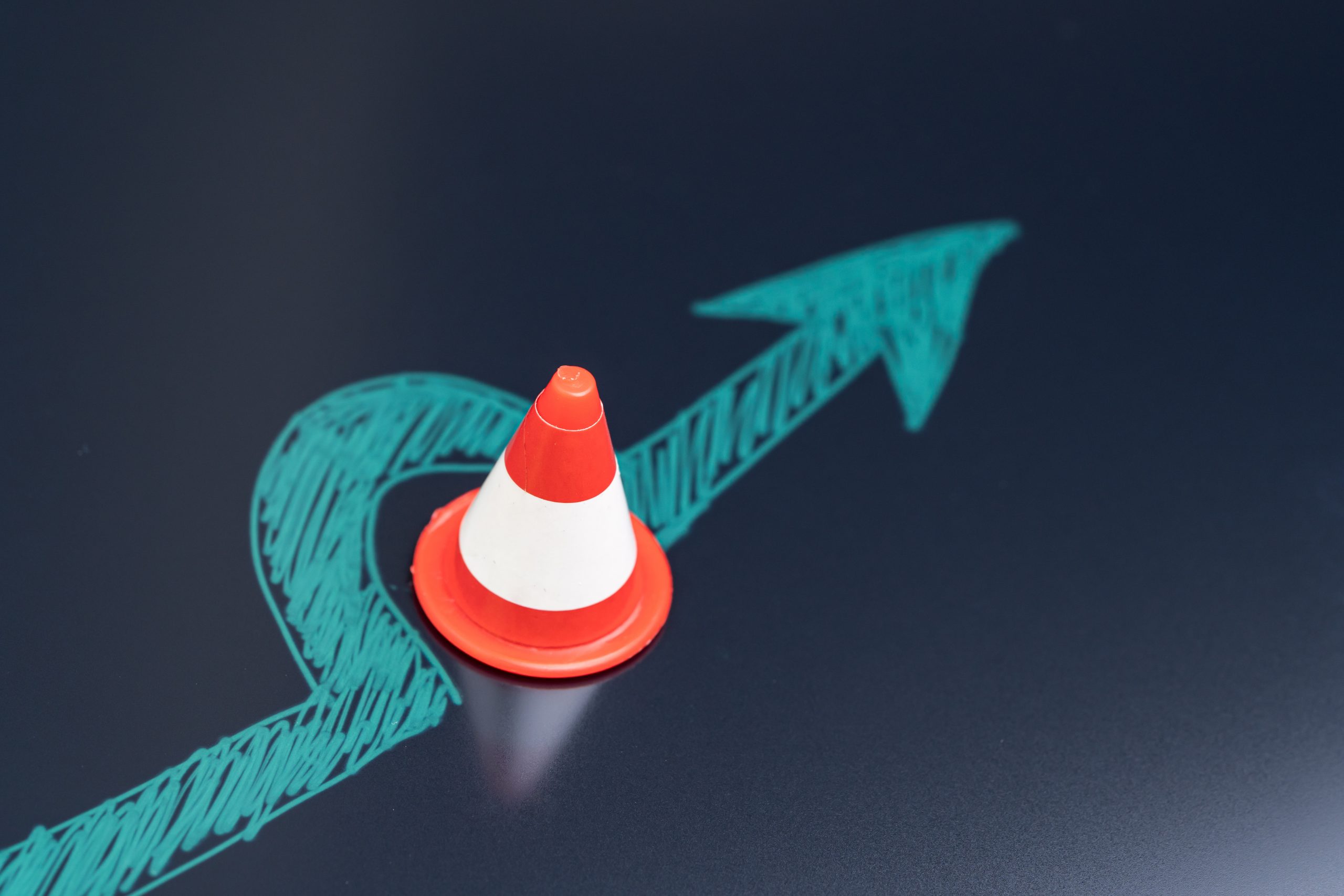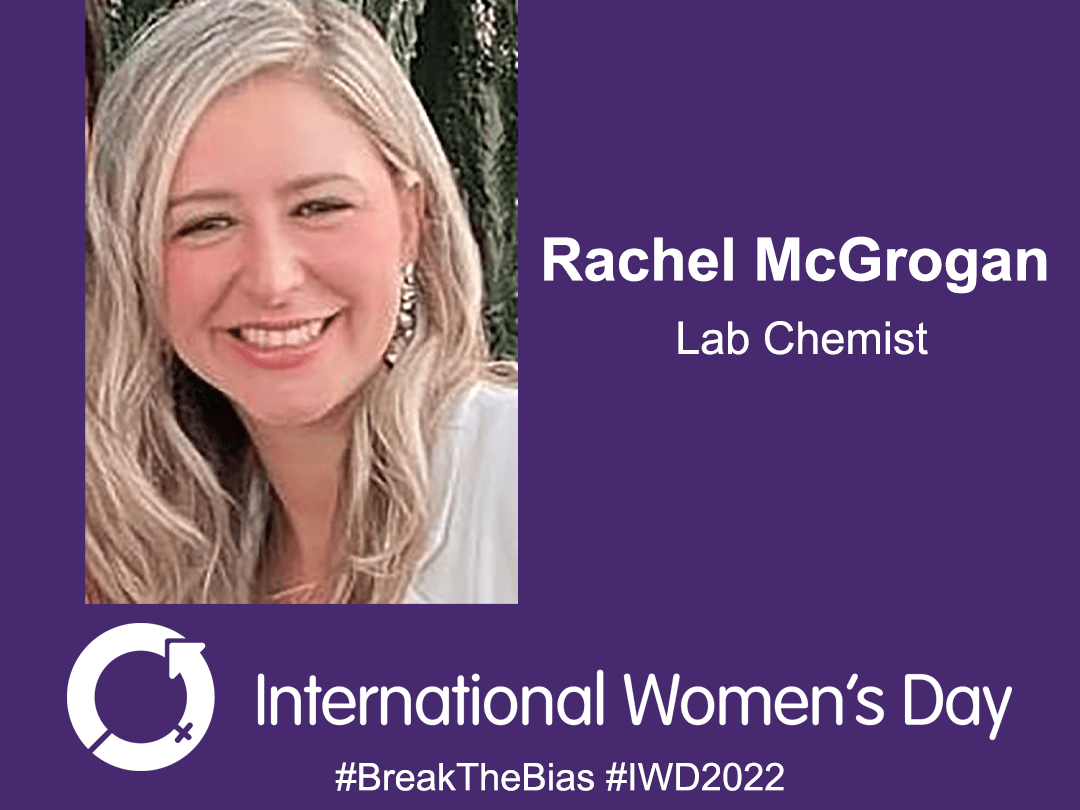

At Heritage, every service line we’ve developed, every new waste management method we’ve offered, has been driven by the needs of our customers.
Our company was founded in 1970 when a customer looked to us to take their cutting oils and coolants and recover the oil as fuel to power our asphalt hot mix plants. We developed a treatment process to address contaminated water that was created as a byproduct of this process, and this innovative technology became the basis for our operations. When the EPA was established and created new environmental regulations for contaminated soil (Resource Conservation Recovery Act – 1980), our customers needed a company that could help them comply. Our landfill received the first US EPA RCRA Hazardous Waste Part B permit in the United States. We added transportation to serve our customers more efficiently. For customers who didn’t have truckloads of waste, we developed a route-based program so they could safely transport smaller quantities of waste. At the beginning of the COVID-19 pandemic, we developed two service lines – a PPE disposal program to address the new waste stream of PPE generated by health care centers and disinfecting services for businesses so they could safely operate during the pandemic.
The Resource Conservation and Recovery Act (RCRA) continues to be our guiding framework for generation, transportation, treatment, storage, and disposal of hazardous waste. Our waste hierarchy model illustrates our process when dealing with a new wastestream. Our initial efforts are always to reduce, recycle, or recover before resorting to treatment and disposal options. Heritage Interactive coordinates the efforts for the first two stages and has helped hundreds of our customers achieve Zero Waste to Landfill status. Our teams work closely with the businesses that generate waste, safely transport it to our facilities and use the best available treatment methods to ensure hazardous chemicals isolated from the air, water, and soil. The world-class laboratory and researchers at the Heritage Research Group help customers solve complex waste problems, without compromising on safety or compliance.
We strongly believe in the importance of understanding and upholding the hazardous waste regulations, and we offer the most up-to-date training for employees and customers alike. They are now able to join over webinar, to ensure environmental service standards are met and exceeded at our facilities and customers’ sites.
We’re striving for transparency in our own sustainability efforts, with an internal focus on sustainability, reporting, and a future view toward waste reuse in a circular economy. Our customers are at the heart of what we do, and we look forward to another 50 years of making it easy for them do the right thing and find sustainable solutions for their waste streams. Learn more about our dedication to our customers in the “Patrons” section of our sustainability report.
More News From Heritage
-
Published Articles 8/2/22
How Safety, Maintenance, and Reliability Are Intertwined
VP of Health and Safety Jim Mangas discusses the importance of plant safety, maintenance, and reliability (featured in BIC Magazine July/Aug '22)
-
Blogs 7/28/22
Spotlighting Our Environmental Interns
Highlighting some of the wonderful interns we have at Heritage this year!
-
Blogs 7/11/22
Turning Hazardous Waste into an Alternative Fuel
In this blog we walk you through the process of fuel blending, where we can turn hazardous waste materials into a viable alternative fuel source.
-
Community News 6/15/22
2022 Habitat for Humanity Build
Our 12th annual Habitat for Humanity Build
-
Blogs 4/13/22
After Hurricane Ida, Our Port Fourchon Office Rebuilds
On August 28th, 2021, the Louisiana coast was battered by Hurricane Ida. This included our Port Fourchon Service Center, where the devastating hurrica
-
Community News 4/7/22
Heritage readies for Earth Day HHW collection in East Liverpool
Heritage Thermal Services is pleased to announce that its collection of household hazardous wastes for the East Liverpool area returns for 2022.
-
Published Articles 4/2/22
The Impact of Changing Conditions
VP of Health and Safety Jim Mangas discusses preparedness for unexpected conditions during a project. (featured in BIC Magazine March/April '22)
-
Blogs 3/11/22
International Women’s Week Spotlight – Rachel McGrogan
Rachel McGrogan speaks about her time as a Lab Chemist at Heritage.
